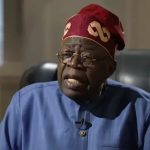Leadership is a great need of every human society. It has become a cliche that everything rises and falls on leadership. While we have many more people signing up for leadership roles every day, there is a need for such leaders to grow beyond ordinary leaders to becoming great leaders. What are the qualities of a great leader? How is a great leader different from an ordinary leader? This article demonstrates qualities that can stand an individual out as a great leader.
Great leaders are vision-oriented.
It is not strange that certain leaders lack any tangible vision which people should willingly be committed to. Such people lead, or rather rule, by coercion. Authoritarian and dictatorial leadership do not make anyone a great leader. When people do not follow you based on their volition, then, you are not a leader. But what compels someone to become your follower? Vision. Everyone wants to be associated with something meaningful, life-transforming and fulfilling. If they do not find their destiny in your vision, immediately your instrument of coercion crumbles, they will delete every memory of your “leadership” in their lives. You must have a vision. And you must make it clear. When someone considers his/her life purposeful because of the vision you embody and pursue, then, to such a person, you are a great leader.
Also See: WAYS TO DEVELOP LEADERSHIP SKILLS
Great leaders are goal-oriented.
Goals emanate from the overall vision. When your vision is split into measurable chunks, then each becomes a goal. And goals are geared towards solving problems. Great leaders identify problems and set out to solve them. As a principle, great leaders do not dwell on problems. They focus on how to surmount problems. Any leader who complains and whines about problems, will not become a great leader. Great leaders direct their energy away from anxiety or worry to strategizing for solutions.
A great leader is an excellent communicator.
Getting visions and goals is not the ultimate. A leader who does not know how to communicate his visions and goals can not attain greatness. A great leader is an excellent communicator. He understands the importance of having everyone under him align with his vision and goals. So, he sets out to passionately convey the vision, goals and general culture of his team to everyone. What also endears him to his people is his ability to convince others to follow his course of action. Therefore, greatness begins when you are able to express your vision and goals to everyone around you. But unlike an ordinary leader, the great leader does not simply speak. He also listens to get feedback from those whom he leads. By so doing, he acknowledges their importance in the ultimate mission.
A great leader leads by example
A maxim that should always be before everyone who wants to be a great leader is “examples are better than precepts”. There are many leadership books on the shelves of individuals, in libraries, in books stores, and so on. Many leaders have not only read these books but can also effectively and passionately communicate the contents of such books. However, there seems to be a vacuum when it comes to leaders who live by example. There are many leaders whose lives are not governed by some of the things they advocate. You cannot become a great leader when your actions do not match your words. If you live by example, you will not only be a leader. You will command great followership because people always trust sincere leaders.
Great leaders do not engage in blame-games.
Great leaders do not engage in blame-games. They take responsibility. They believe and demonstrate that the buck stops on their table. When things go wrong, even if they are not directly responsible for the error or failure, they immediately take responsibility to remedy whatever may have gone wrong. The greatness of such a leader lies in the fact that the subjects will repose a high level of respect and loyalty in him/her.
A great leader raises and nurtures a team.
A key aspect of a great leader’s drive is the need to raise and nurture a team. But he does not merely raise a team of followers. He raises and nurtures a team of leaders. Why does a great leader build a team? He does so because he understands that great visions are no accomplished by an individual. It takes the collective effort of like-minded people to achieve a vision of magnificent proportion. Having a team of partners is also a recognition that the main leader doesn’t have all the abilities required to succeed in terms of the stated vision being pursued. So, a great leader takes up the task of teaching, training, mentoring, correcting, reshaping and placing members of his team in positions where they have the ability to serve.
A great leader is lavish with praises.
Because of his awareness of the power of a team, a great leader is not economical with dishing out praises or incentives to members of his team. He does not arrogate the worth and distinction for which the team is known to himself alone. He shares every team glory by recognising the roles played by each team member. Hence, he is highly regarded and honoured by his followers. His ability to prove that he is not power-hungry or unnecessarily pursuing a selfish ambition endears him more to his followers or team members.








